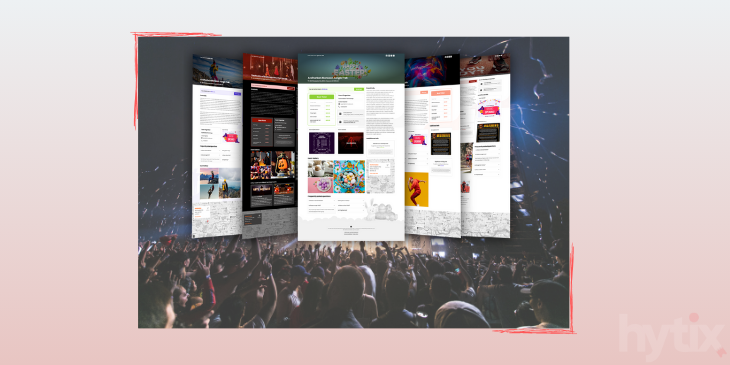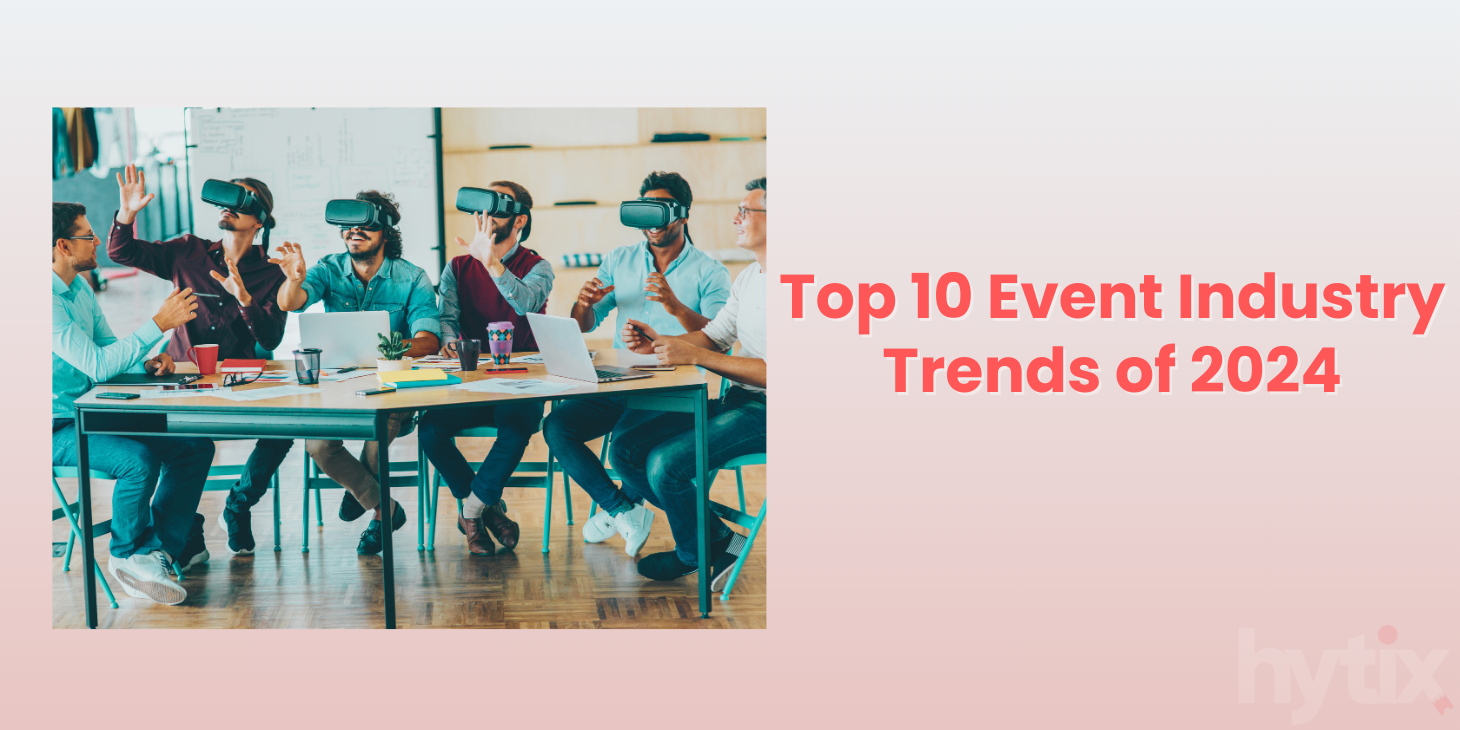Contents
- 1 Embracing Technology in Event Planning
- 2 Sustainable and Eco-Friendly Events
- 3 Personalization and Customization
- 4 Innovative Event Set up
- 5 Marketing and Engagement Strategies
- 6 Corporate and Business Events
- 7 Trends in Event Design
- 8 Global and Cultural Trends
- 9 Challenges and Opportunities
- 10 Future Outlook for Event Organizing
- 11 Conclusion
The event industry is dynamic, and continuously evolving to meet the changing needs and preferences of audiences. As we move into 2024, several key trends are set to shape the landscape of event setup and management. These trends encompass technological advancements, shifts in attendee expectations, and innovative approaches to event design and marketing. This comprehensive overview explores the top event industry trends of 2024, offering insights into what planners and marketers need to know to stay ahead in the competitive market.
Embracing Technology in Event Planning
Virtual and Hybrid Events
The prominence of virtual and hybrid events continues to rise. Although in-person events are making a comeback, the convenience and reach of virtual components remain attractive. Hybrid events, which combine physical and online elements, provide flexibility and broader audience engagement. Planners should focus on creating seamless experiences for both in-person and virtual attendees, leveraging robust event platforms and technologies.
Augmented and Virtual Reality
Augmented Reality (AR) and Virtual Reality (VR) are revolutionizing the event industry. These technologies offer immersive experiences that can enhance attendee engagement. From virtual tours of event venues to interactive AR exhibits, these tools provide unique ways to captivate audiences. In 2024, we expect to see more events integrating AR and VR to create memorable and interactive experiences.
AI (Artificial Intelligence) and Data Analytics
Artificial Intelligence (AI) and data analytics are becoming integral to event planning. AI can personalize attendee experiences through chatbots and recommendation engines, while data analytics offer valuable insights into attendee behavior and preferences. Event organizers can leverage these technologies to optimize their strategies, improve marketing efforts, and enhance overall event effectiveness.
Advanced Ticketing Solutions
Innovations in ticketing technology are streamlining the attendee experience. Advanced ticketing solutions offer features such as dynamic pricing, seamless check-in processes, and robust data analytics. These ticketing features enhance convenience for attendees and provide valuable insights for event organizers.
Sustainable and Eco-Friendly Events
Green Event Practices
Sustainability is a growing concern, and the event industry is no exception. Organizers are increasingly adopting green practices, such as reducing waste, using eco-friendly materials, minimizing carbon footprints, and paperless tickets such as mobile tickets through ticketing apps. In 2024, expect a greater emphasis on sustainable event planning, with more events striving to be zero-waste and carbon-neutral.
Local Sourcing and Ethical Choices
Sourcing local products and services not only supports local economies but also reduces the environmental impact of events. Additionally, there is a growing trend towards making ethical choices in event planning, including fair trade products and socially responsible partnerships. These practices appeal to environmentally conscious attendees and enhance the overall reputation of the event.
Personalization and Customization

Tailored Event Template
Event organizers now expect personalized experiences that satisfy their individual preferences. Event organizers are using event ticketing software to tailor content, sessions, and activities to meet the specific interests of attendees. This trend is driving the demand for customizable event theme dashboards personalized communications, and unique attendee experiences.
Niche and Specialized Events
Niche events targeting specific industries, interests, or communities are becoming more popular. These specialized events offer targeted content and networking opportunities, attracting dedicated audiences. In 2024, expect to see a rise in niche conferences, trade shows, and meetups that cater to distinct segments of the market.
Innovative Event Set up
Experiential and Interactive Events
Experiential events that engage attendees through interactive and hands-on activities are gaining traction. These events go beyond traditional formats to create immersive environments where participants can actively engage with the content. From pop-up experiences to interactive installations, the focus is on creating memorable and impactful moments.
Wellness and Well-being
The incorporation of wellness elements into events is a growing trend. Attendees are increasingly looking for events that promote well-being, including activities like yoga sessions, mindfulness workshops, and healthy catering options. Integrating wellness into event organizing not only enhances the attendee experience but also reflects a commitment to holistic health.
Marketing and Engagement Strategies
Influencer and Social Media Marketing
Strategies for social media marketing and social media engagement are essential for promoting events. Collaborating with influencers who have a strong following in the event’s niche can significantly boost visibility and attendance. Additionally, leveraging social media platforms for live updates, behind-the-scenes content, and interactive polls can drive engagement before, during, and after the event.
Content Marketing and Storytelling
Compelling content and storytelling are crucial for capturing audience interest. Event marketers are focusing on creating engaging narratives around their events, using blogs, videos, and social media to tell compelling stories. In 2024, expect a continued emphasis on high-quality content that resonates with audiences and drives event participation.
Corporate and Business Events
Executive Summits and Thought Leadership
Corporate events are increasingly focused on thought leadership and executive summits. These events provide platforms for industry leaders to share insights, discuss trends, and network with peers. In 2024, we expect to see more high-level executive gatherings designed to foster collaboration and innovation within industries.
Team Building and Corporate Retreats
Team building and corporate retreats are evolving to include more unique and engaging activities. Companies are seeking creative ways to strengthen team dynamics, enhance employee engagement, and promote a positive company culture. From outdoor adventures to creative workshops, these events are designed to be both fun and impactful.
Trends in Event Design
Creative and Thematic Décor
Event design is becoming more creative and thematic, with a focus on creating visually stunning environments. Planners are using innovative décor, lighting, and staging to transform event spaces and create immersive experiences. Thematic design elements that align with the event’s purpose or message are particularly popular.
Multi-Sensory Experiences
Incorporating multi-sensory elements into events can significantly enhance the attendee experience. From sensory installations to interactive art, these elements engage attendees’ senses and create memorable moments. Expect to see more events incorporating soundscapes, aromatic experiences, and tactile installations in 2024.
Global and Cultural Trends
Cultural Sensitivity and Inclusivity
Events are becoming more culturally sensitive and inclusive. Planners are making concerted efforts to respect cultural differences, accommodate diverse needs, and create inclusive environments. This trend in event industries is not only ethically important but also broadens the appeal of events to a global audience.
Global Networking and Collaboration
Global events are emphasizing networking and collaboration across borders. With advancements in technology and communication, it is easier than ever to connect with international audiences. In 2024, we expect more events to feature global speakers, virtual participation options, and international networking opportunities.
Challenges and Opportunities
The event industry is still navigating the impacts of the COVID-19 pandemic. Health and safety remain top priorities, with planners implementing robust safety protocols to ensure the well-being of attendees. Balancing in-person and virtual elements continues to be a challenge, but it also offers opportunities for innovation and growth.
Managing Costs and Budgets
Event budget shackles are a common challenge in event organizing. Organizers need to find creative ways to deliver high-quality experiences while managing costs. This includes negotiating with vendors, optimizing resource allocation, and exploring cost-effective technologies.
Future Outlook for Event Organizing
Emerging Technologies
The future of the event industry is closely tied to emerging technologies. Innovations such as AI, blockchain, and 5G are set to transform how events are planned, marketed, and experienced. Staying abreast of technological advancements is crucial for planners looking to remain competitive and deliver innovative events.
Adapting to Changing Attendee Preferences
Attendee preferences are continually evolving, driven by changes in technology, culture, and societal norms. Planners need to stay attuned to these shifts and adapt their strategies accordingly. This includes understanding generational differences, catering to diverse interests, and providing flexible participation options.
Conclusion
The event industry in 2024 is marked by innovation, adaptability, and a focus on creating meaningful experiences. From embracing innovative technologies to prioritizing sustainability and personalization, event organizers have a wealth of opportunities to enhance their events and engage audiences in new and exciting ways. By staying informed about the latest trends and being proactive in implementing best practices, planners can navigate the challenges of the industry and deliver successful events that leave a lasting impact.
